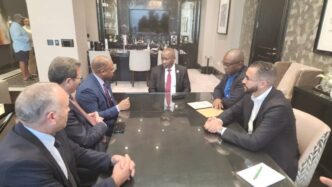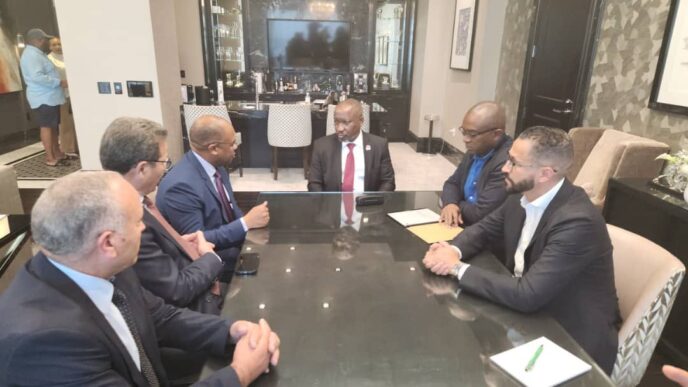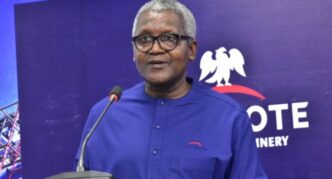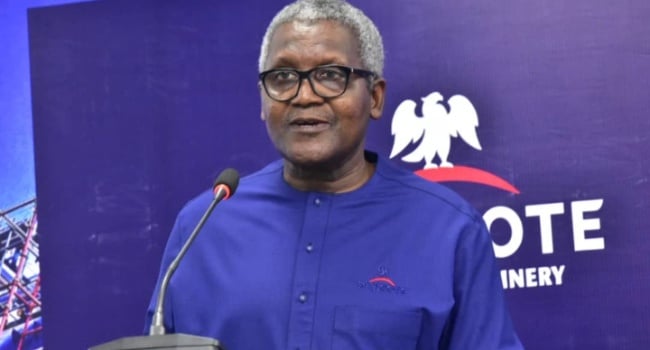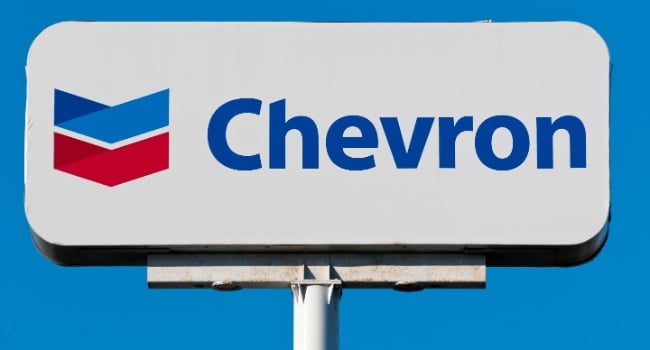Kyari Bukar, a former chairman of the Nigerian Economic Summit Group (NESG), says President Bola Tinubu should have removed subsidy on premium motor spirit (PMS), also known as petrol, gradually to ease the effect on Nigerians.
Speaking on Friday when he featured on Inside Sources with Laolu Akande, on Channels Television, Bukar said the petrol prices should have been removed by 5 percent every six months.
He said removing the subsidy gradually would have prevented the public from feeling the impact as quickly as they did.
“There is a lot of anxiety in the country and economically speaking, there is also a lot of hunger and people have become violent,” Bukar said.
Advertisement
“People are saying things that they ought not to be saying and all of those are tied to a few of the policy stunts that we started very early on: the fuel subsidy removal and, of course, the harmonisation of the exchange rates.
“Both of them are good policies if it had been done in a more informed manner. My own take on fuel subsidy removal is to truly remove fuel subsidy gradually over a period of time.
“I have made that recommendation previously, and I will continue to stand by it. It is the parable of the boiled frog. You know, you throw a frog in hot water, it jumps out. You put it in cold water and you raise the temperature gradually, gradually it adapts.
Advertisement
“So even if you are increasing fuel price by 5 percent every six months, it will not be felt as we did recently.”
Bukar said while the government said the petrol subsidy had been removed, the government continued to subsidise PMS.
“The government was paying the subsidy. Somebody would say, well, NNPC is paying it, or the government is paying it, but somebody is paying it,” he said.
“These are monies that could go into what we’ve just discussed, education, healthcare, infrastructure, etc. Technology. 2-300 billion every month is being spent (on subsidy), higher even, as we saw some of the numbers that the Nigerian Bureau of Statistics showed.”
Advertisement
Speaking on the exchange rate harmonisation policy, Bukar said although liberalising the foreign exchange (FX) market was crucial, the government did not fully consider the unintended consequences of the move.
‘APPROACH AND IMPLEMENTATION OF POLICIES HORRIBLE’
Bukar said proper analysis and recommendations should have been made to the president before announcing the policy.
“The second is that of the harmonisation of the exchange rate. You know, as long as people can actually get access to FX when they need it, if you even completely, totally liberalise it, the currency would not have moved in the manner in which it had moved,” he said.
Advertisement
“The unintended consequences of those policy pronouncements should have been studied and those recommendations shared with Mr. President before he goes on the podium to say it. So something was missing, in all honesty.
“You have to advise your principal to carry the nation with him. The vision may be right, but the approach and execution or implementation was horrible.”
Advertisement
Bukar emphasised the importance of cushioning the effects of the economic policies on the country’s most vulnerable citizens.
He advocated for the use of technology to deliver targeted financial relief, citing tools such as the bank verification number (BVN) and the national identification number (NIN) as effective means of reaching individuals directly.
Advertisement
According to Bukar, such a system would minimise the risks of corruption and ensure that the funds reach those who need them most.
Bukar said the economic strain might have been alleviated if the relief measures were implemented.
Advertisement
On May 29, 2023, the president announced the removal of petrol subsidy.
The Central Bank of Nigeria (CBN) also announced the unification of all segments of FX markets on June 19.
Add a comment


